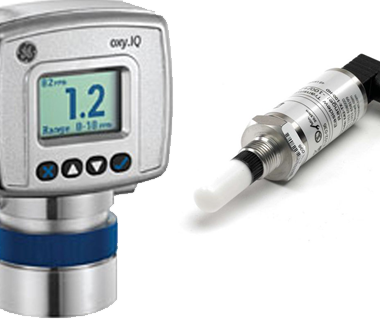Environment, Health and Safety Manual – Chapter 06.01: Clinical Safety – Occupational Health Requirements for University Employees Located in Healthcare Facilities
Title
Environment, Health and Safety Manual – Chapter 06.01: Clinical Safety – Occupational Health Requirements for University Employees Located in Healthcare Facilities
Introduction
Working in a health care environment poses a risk for acquiring certain infectious diseases greater than that for the general public. To reduce the potential risk, employers are required to establish a medical surveillance program which documents immunity for some diseases, monitoring for others such as Tuberculosis, along with safety training on methods to prevent exposure and disease. These programs are to be provided at no cost to the employee in accordance with OSHA. The University has designated the University Employee Occupational Health Clinic (UEOHC) as the responsible party for providing the medical services component of the medical surveillance program and the Department of Environment, Health and Safety for administrative aspects as well as the general safety training.
Please note: employees whose position has them entering facilities where patient care is provided, whether in a patient care area or in an administration wing, must comply with the occupational medical surveillance and safety training requirements outlined in this policy.
Medical Surveillance
Immunization Review
To protect University Health Care employees from potential infectious diseases, all employees working in a health care environment are required to be up-to-date on their immunizations. Employees are required to complete an immunization review within in the first 10 days of appointment. The immunization review will be based on the CDC/HICPAC Guideline for Infection Control in Health Care Personnel (see Appendix A). Employees may be required to have additional immunizations at a later date based on changes to this guideline. Documentation of immunizations can include a copy of medical notes, University student health record, or other types of documentation.
TB Screening
In accordance with the University and UNC Health Care Systems Tuberculosis Exposure Control Plan, all employees working in a healthcare environment are required to receive a skin test (TST) for tuberculosis screening within in the first 10 days of employment and is strongly recommended annually thereafter.
Initial
For employees who have no documentation of a TST within the last year, a 2-step TST screening procedure will be administered by the UEOHC to establish baseline results. Documentation of outside TST administration and reading may be accepted if the documentation is by a facility trained in public health/occupational medicine (i.e. Student Health Services, Public Health Department, Occupational Health Department of other healthcare facilities, private physician, military).
Annual
EHS will send notifications to employees reminding them that it is time for their annual Tuberculosis symptom review or screening options per CDC recommendations. For further details concerning tuberculosis, please refer to the Tuberculosis Control Plan (see attached file).
Hepatitis B Under the Bloodborne Pathogen Program
In accordance with OSHA “Occupational Exposure to Bloodborne Pathogens” (29 CFR Part 1910.1030), the University’s Bloodborne Pathogen policy, the University’s and UNC Health Care Exposure Control Plan, all employees with potential exposures to blood or human body fluids are to be offered the Hepatitis B vaccine. The Hepatitis B vaccine is a series of three shots (initial, 2nd one month later, 3rd 6 months later). If an employee declines the vaccination, then a declination must be completed and submitted to the UEOHC. If an employee has already received the Hepatitis B vaccination, then that information is to be provided to the UEOHC. For further details concerning bloodborne pathogens, please refer to the Exposure Control plan for Health Care workers (see attached file).
Community Practices and UNC TEACCH Facilities
Community Practices and UNC TEACCH centers located in Asheville, Charlotte, Greensboro, Greenville, Fayetteville, Henderson, and Wilmington may receive medical surveillance services through designated local care providers. Once medical surveillance is received, this information is to be forwarded to the UEOHC for the employee’s occupational health record.
Employee Occupational Health Record
The UEOHC will maintain the employee’s occupational health record. Employees needing a copy of their occupational health record should contact the UEOHC at 919-966-9119.
UEOHC Fees
A general fee for services is needed to maintain the University’s medical surveillance program. All departments who have personnel working in or around healthcare facilities will be charged a nominal fee per employee each year for this program.
Safety Training
Safety training is a method used not only to inform employees of University policy and procedures, but understand the hazards associated with their work and ways to minimize or reduce potential exposure to those hazards. EHS has established both on-line and instructor led courses for employees to meet their required training such as: New Employee Clinic Orientation, Bloodborne Pathogens, Tuberculosis and Infection Control, Health Care Worker/JCAHO Safety Information, etc. All safety training records required by OSHA, JCAHO, and other regulatory agencies are to be maintained on EHS’s Health and Safety Management Information System (HASMIS).
If University employees receive required annual safety training by means other than EHS sponsored training (i.e. UNC Dental School, Dorothea Dix, etc), it must be approved by EHS and the records are to be sent to EHS for entering into the system. Such records must contain the employee’s name, PID identification number, signature of attendance (or post test), date of training, instructor’s name, and a brief description or outline of the training.
Facility-Specific Medical Surveillance and Safety Training Requirements
The table below illustrates some of the requirements for specific facilities. Please note this matrix is not inclusive of all training and medical surveillance. Any department that needs assistance with job specific training and/or medical surveillance should contact EHS.
| Facility | New Employee Safety Orientation | Required Annual Safety Training | Examples of Job Specific Safety Training | Required Medical Surveillance |
|---|---|---|---|---|
| Administrative Staff working in a health care environment | Office | Tuberculosis JCAHO Fire Extinguisher |
Immunization Review TST (for TB) | |
| UNC Health Care System, Hospital, and Community Practices | Clinic | Tuberculosis JCAHO Fire Extinguisher Where applicable: Bloodborne Pathogens Respiratory Protection |
CPR, where applicable | Immunization Review TST (for TB) Where applicable: Annual Respiratory |
| Student Health Service | Clinic | Tuberculosis JCAHO Fire Extinguisher Where applicable: Bloodborne Pathogens Respiratory Protection |
CPR, where applicable | Immunization Review Annual TST (for TB) Where applicable: Annual Respiratory |
| Dental School | Clinic | Tuberculosis Fire Extinguisher Where applicable: JCAHO Bloodborne Pathogens Respiratory Protection |
CPR, where applicable | Immunization Review TST (for TB) Where applicable: Annual Respiratory Protection |
| TEACCH | Clinic | Tuberculosis Where applicable: Bloodborne Pathogens |
Annual Mental and Physical Health Annual TST (for TB) |
|
| Other Facilities Dorthea Dix Hospital John Umstead Hospital New Hanover Hospital Wake Medical Ctr. Rex Hospital Etc. |
Clinic | Tuberculosis JCAHO Fire Extinguisher Where applicable: Bloodborne Pathogens Respiratory Protection |
Could be subject to site specific requirements | Immunization Review Annual TST (for TB) Where applicable: Annual Respiratory |
Training available from EHS as either instructor-led or on-line self study:
- Office environment new employee safety orientation
- Clinic environment new employee safety orientation
- Tuberculosis
- Bloodborne Pathogens
- Respriatory Protection
Training available from EHS as instructor-led:
Training available from EHS as online self study:
Departments are responsible for arranging CPR and other job specific safety training.
Failure to Comply
The University has instituted an Enforcement of Training and Medical Surveillance policy. This policy requires supervisors to ensure that employees receive medical surveillance within the specified time period and attend the required safety training. Refer to the Enforcement of Training and Medical Surveillance policy for greater details.
Contact Information
Policy Contact
Environment, Health & Safety
1120 Estes Drive
Campus Box #1650
Chapel Hill, NC 27599-1650
Phone: 919-962-5507
Back to Chapter 05.23 – Lead-Based Paint Hazard Policy
Proceed to Chapter 06.02 – Electromagnetic Interference





